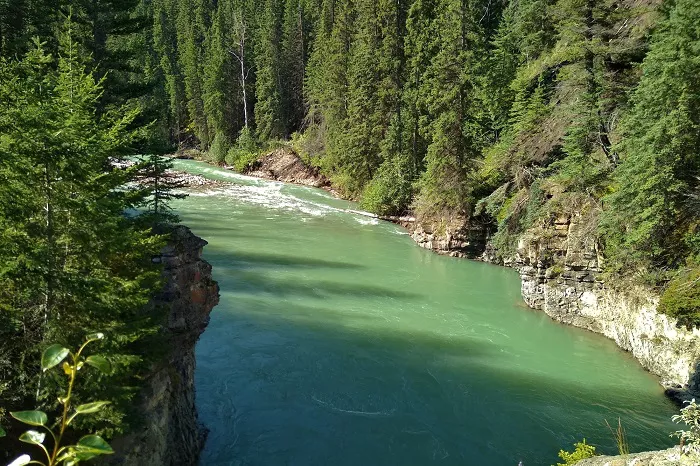VANCOUVER, British Columbia — Canadian National Railway (CN) has initiated legal proceedings against Parks Canada, seeking permission to construct a berm designed to safeguard its main rail line from potential flood damage caused by the Snake Indian River in Jasper National Park, Alberta.
According to a federal court filing, CN claims that Parks Canada has delayed its request for more than eight years, refusing to permit an environmental impact assessment of its proposed flood prevention measures. The railway is asking the court to overturn the agency’s refusal to conduct the required assessment.
CN’s concern centers on the risk of avulsion—a sudden shift in the river’s course during periods of high water flow. The railway’s experts warn that the Snake Indian River could abruptly abandon its current channel, creating a new path flowing directly toward the main rail line. Such an event, CN argues, would cause catastrophic damage to critical infrastructure.
In its January 2024 proposal, CN presented two berm construction options: one using materials sourced externally, and another utilizing dredged materials from within the river. The latter would permit a smaller berm due to simultaneous river deepening, potentially reducing environmental disruption.
The railway’s legal documents reveal that CN first proposed flood mitigation measures in 2017. Since then, Parks Canada has repeatedly modified its environmental assessment procedures, consistently rejecting CN’s proposals.
While Parks Canada supports the principle of constructing a protective berm, a letter included in the court filing indicates the agency opposes using materials dredged from within the park. CN estimates that importing external materials would extend the project timeline by at least two years and involve transporting approximately 1,200 railcars and 2,000 truckloads of material.
CN declined to comment on the lawsuit when approached by media outlets. Parks Canada did not provide an immediate response to requests for comment.

